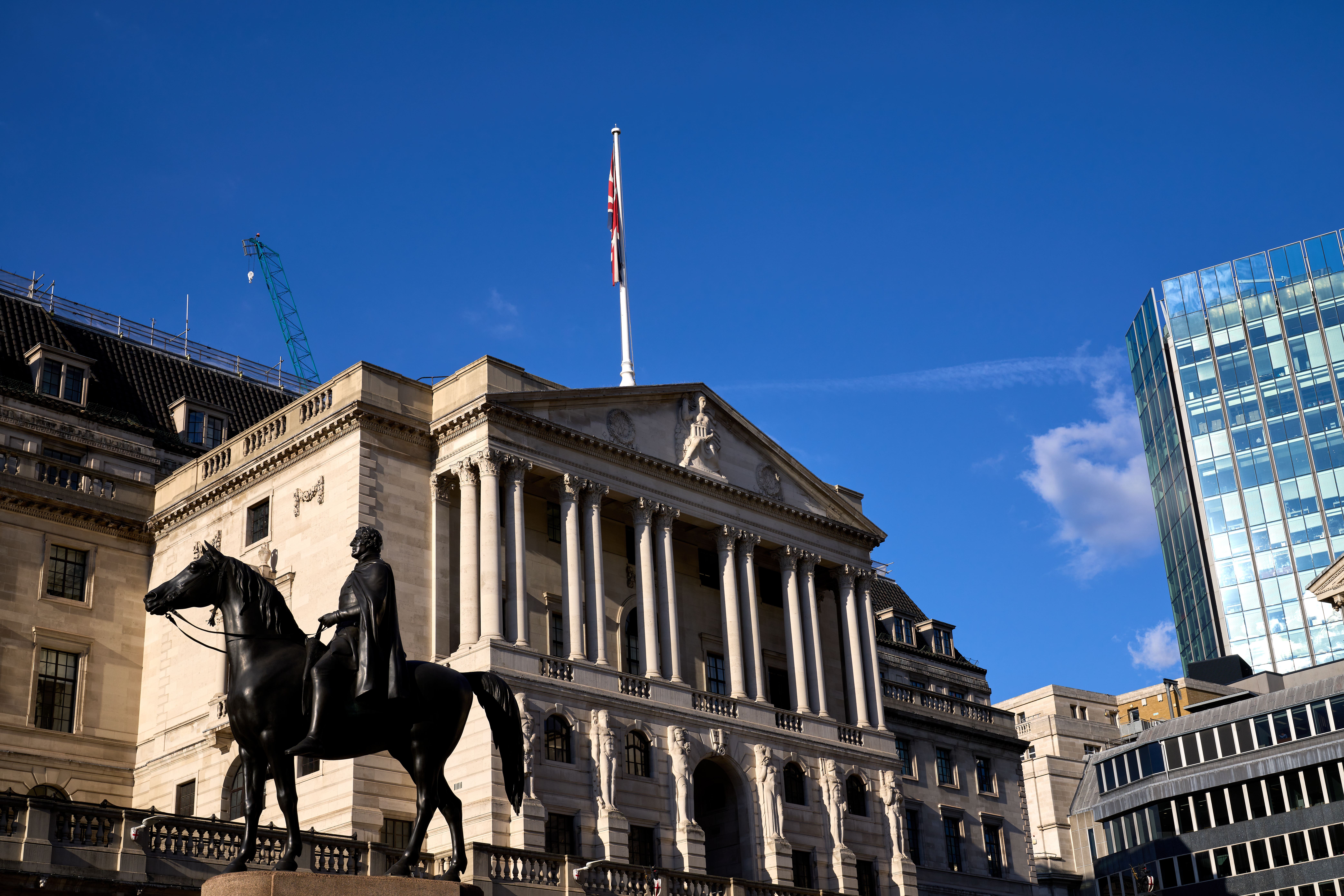Bank chief economist: Inflation could be more persistent even if gas prices fall
Huw Pill said in a speech on monetary policy that Britain is probably in a recession.

Your support helps us to tell the story
From reproductive rights to climate change to Big Tech, The Independent is on the ground when the story is developing. Whether it's investigating the financials of Elon Musk's pro-Trump PAC or producing our latest documentary, 'The A Word', which shines a light on the American women fighting for reproductive rights, we know how important it is to parse out the facts from the messaging.
At such a critical moment in US history, we need reporters on the ground. Your donation allows us to keep sending journalists to speak to both sides of the story.
The Independent is trusted by Americans across the entire political spectrum. And unlike many other quality news outlets, we choose not to lock Americans out of our reporting and analysis with paywalls. We believe quality journalism should be available to everyone, paid for by those who can afford it.
Your support makes all the difference.The Bank of England’s chief economist has said that inflation in the UK could become “more persistent” amid prevailing tough economic conditions, as he hinted at another upcoming interest rate hike.
Huw Pill said in a speech on monetary policy, due to be delivered in New York on Monday, that Britain is probably in a recession.
The chief, who is influential in the Bank of England’s decisions over interest rates, confirmed that the Monetary Policy Committee (MPC) would be prepared to act “forcefully” if the outlook suggests more persistent inflation.
In the same speech, he said that higher natural gas prices, a tight labour market and global supply bottlenecks create “the potential for inflation to prove more persistent”.
“It is therefore in this nexus that I focus in coming to my own assessment of the risks surrounding inflation persistence, which… will strongly influence my monetary policy position in the coming months,” he said.
The remarks suggest that Mr Pill would support another interest rate hike at the next MPC meeting in order to put a lid on inflation.
The base rate of interest is currently 3.5%, the highest rate since October 2008, with the MPC voting to increase the rate at each of its past nine meetings.
Mr Pill confirmed bringing down inflation to its 2% target was the key driving force for his, and the Bank’s, monetary policy decisions.
Higher energy prices across Europe, prompted by Russia’s invasion of Ukraine, have given a “significant impetus” to inflation over the past year.
But, even if natural gas prices stabilise or fall back down, inflation could remain high because households and businesses will still try to protect their incomes against higher energy bills, Mr Pill said.
He explained: “In an attempt to protect their own real income from the unavoidable impact of higher external prices, the longer that firms try to maintain real profit margins and employees try to maintain real wages at pre-energy price shock levels, the more likely it is that domestically generated inflation will achieve its own self-sustaining momentum even as the external impulse to UK inflation recedes.”
It echoes similar recent remarks from the Bank’s governor, Andrew Bailey, that while workers will want to seek pay rises as living costs soar, it could have the adverse effect of “locking in” high inflation in the UK.
Mr Pill also said that supply chain disruptions, which were worsened by Brexit, appear to have eased in recent months.
The end of the zero-Covid policy in China this week could ease supply constraints, but the current surge in infection rates could “create its own disruption” to production, he cautioned.
Furthermore, the tightening labour market, again influenced by Brexit and the impact of free movement of EU workers into the UK, has had a bearing on inflation, Mr Pill said.
He concluded that both indicators will have to be watched closely by the Bank.